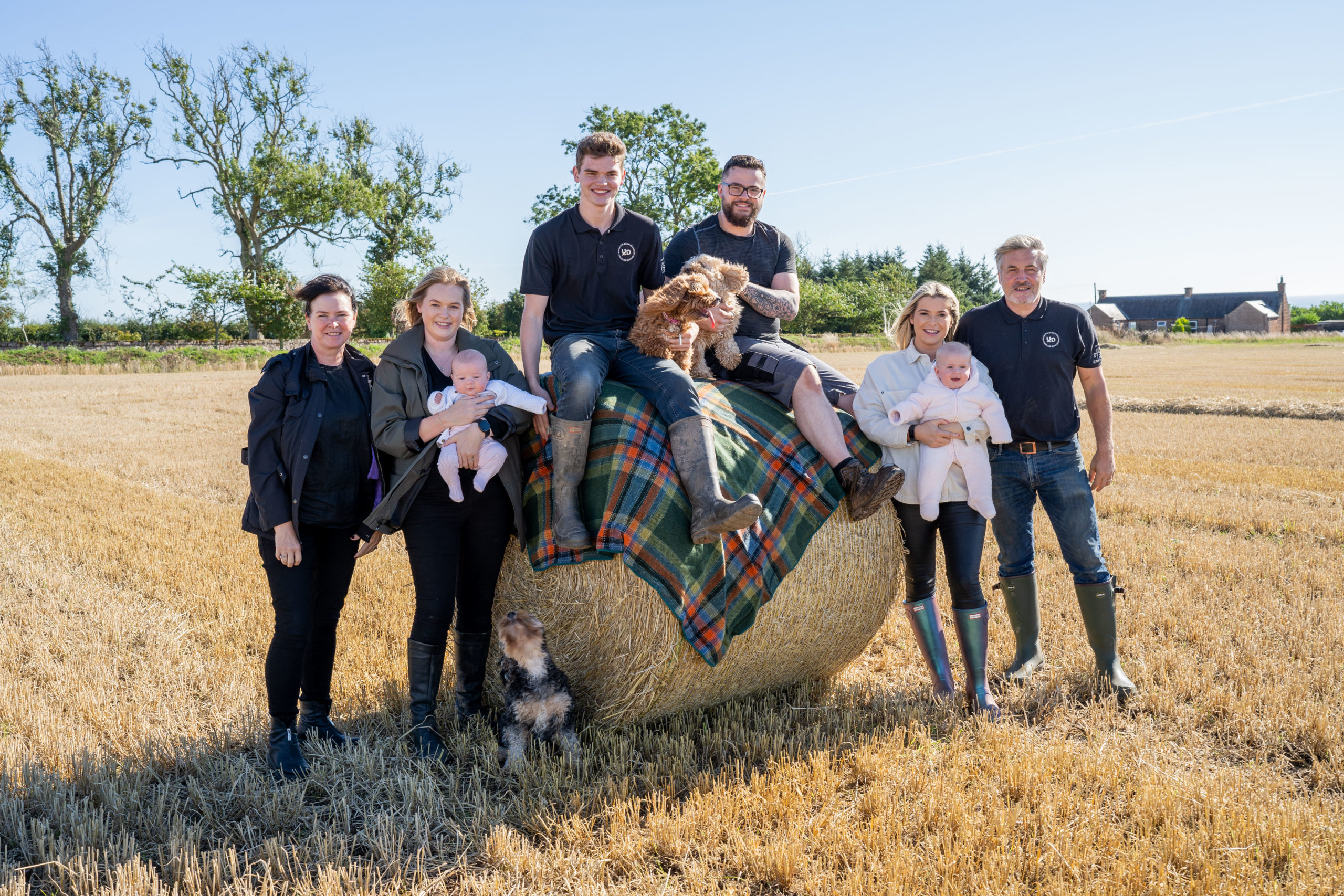- BASF’s Farming, the biggest job on earth podcast highlights call from charity for farmers to join ‘Surplus for Purpose’ food redistribution campaign
- Latest podcast shines spotlight on food poverty hearing from farmers and charities who repurpose surplus food to those in need
- Food poverty affects 14 million people in the UK, 4 million of them children
- Demand for food is spiralling according to food redistribution charity, FareShare who redistributes food from retailers, food service, manufacturers, hauliers, and increasingly, collects unharvested crops from farmers’ fields, at zero cost to the landowner
Established in 2022, Farming, the biggest job on earth podcast series aims to highlight the positive impact farming has on UK food production and protecting the natural environment. Rising costs, less food on shelves and labour shortages to harvest the crops we do have, the latest podcast looks at how to get food to the people that need it most – it is entitled Affording the right to eat.
The charitable work that addresses food poverty frequently tackles food waste, with many taking ‘good to eat’ wasted food and redistributing it to the people that are in need. Ali Gourley, Public and Policy Affairs from FareShare puts the total volume of UK food wasted at 6.2 million tonnes per year – from retailers, food manufacturers, food service outlets and from farms. Of this, the WWF Hidden Waste report from 2022, suggests that 2.9 million tonnes occur on farm – dominantly in unharvested crops – and carries a value of £1.8 billion for those farms.
Alongside Ali, the episode also includes conversations with two farmers – Sally Mercer from Staffordshire and Angus-based farmer Andrew Stirling, both of whom supply local people with meals direct from their farms.
“FareShare redistributes 130 million meals to around 10,000 charities, which equates to four meals per second,” says Ali. “The demand for food is higher than it has ever been, and we don’t have the supply to provide more.”
FareShare’s intent is to ensure good to eat food helps those in need, and many of the charities they supply, help people beyond a meal, providing services like debt advice, support with loneliness and cooking guidance.
“We’ve gone from the crisis of the pandemic to the cost-of-living crisis,” he adds. “During the pandemic the support was ‘meals on wheels’, we now need to move to more face-to-face; if we eat around a table, we talk about the issues affecting people’s lives, and these wrap around services bringing people together.”
Looking ahead, FareShare has the intent – and £5 million for 2023 – to work with farmers to harvest crops left in the field, after the commercial harvest has been completed. The service – which has zero cost to the farmer – is called ‘Surplus for Purpose’ and 100 farmers are already involved.
Ali says: “Unharvested crops are not only perfectly good food, but harvest also reduces the crop’s overall carbon emissions. Last year we harvested 100,000 tonnes and want to do more, so we’re asking farmers to get in touch if they’d like to get involved.”
For a growing number of farmers, giving food direct to local charities is increasing. This is happening in several ways. Donations of produce to foodbanks and charities like FareShare, the growing interest in gleaning agreements – volunteers accessing farmers’ fields to collect unharvested crops and the supply of harvested surpluses that customers no longer require, for example, seasonal surpluses of soft fruit.
The two farmers in the podcast invest significant time and money into what they do to support local people, recognising that doing so diverts revenues from their bottom line. Such giving also raises the important fact, that if these farmers aren’t being paid a fair price by their customers for the produce that they grow and rear, they will be less able to help in the ways that they do in the future.
Andrew and Anita Stirling, from Lunan Bay, Angus, grow and process vegetables and potatoes, as well as running Upper Dysart Larder, a vending machine farm shop. They started supplying local charities and community groups with soup packs and part-cooked vegetables during the Covid pandemic to ‘help out’ and they haven’t stopped since. The family has now donated over 87,000 meals to community trusts, larders, and churches, including Strathmore Cricket Club, Arbroath FC and Monifieth Parish Church.
“We’d like more support for what we do, and the people who work for the charities themselves,” says Andrew. “We have a man from Dundee, who when he first started coming to pick up food for their charity, he filled the boot, and his back seat; he now has some on his lap, and as soon as it arrives, it goes straight back out again, the demand is so high.
“Providing the five to six thousand meals we do every week is stealing away finance from my staff, but what would happen to those people relying on that food? They may not eat,” he adds. “Anita and I have been very lucky and this helps others, so we will carry on doing it.”
During last year’s growing season, Angus Soft Fruits, growers of blackberries, blueberries, raspberries and strawberries in Angus, Fife and further afield, supplied 43 tonnes of fruit to 1,126 charities via FareShare. This equates to over 62,000 meals for a huge cross-section of society – low-, or no-income families, elderly and school clubs, homeless people, and refugees.
In other parts of the country, farmers have linked up with the growing ‘Gleaning’ movement, where volunteers collect leftover crops from farmers’ fields after harvest.
The final conversation in the podcast, is with Sally Mercer. The Mercer family farms near Burton on Trent in Staffordshire. Their specialisms are arable, free-range pigs and poultry. The Mercer’s values are protecting land, respecting animals, increasing biodiversity, help mitigate climate change and support communities.
Sally talks through their community work, the Mercer Family Charitable Foundation, which supports projects in the local community, FarmLink – their classroom in the Countryside and their Farm Fresh Revolution which distributes over 9,000 fresh food bags annually at school gates in deprived neighbourhoods. In partnership with their loyal funding partners, a total of £90,000 is invested annually into FarmLink and the Fresh Farm Revolution work.
“We started the Fresh Farm Revolution after my husband, Rob, came back from his Nuffield Scholarship travels, looking at food poverty; he visited two very big projects in the US and Brazil,” explains Sally.
Their focus is to work with schools in deprived neighbourhoods, where a high proportion of the children are eligible for free school meals. The family supports 180 families every week and has supplied 185 thousand nutritious meals to 40,100 families since they started.
“We use our trucks on a Friday, when we’re not delivering meat to butchers, to take our market stalls to partner schools; we ask families to pay £2 for a bag of fresh food – with meat, fruit and vegetables – worth £17.
“We also provide recipe cards every week and talk to families about what to do with the food, and ask how they got on the week before,” she says. “We work with schools for a minimum of three years, and we see real changes in the attitude to food and cooking.”
The demand for what they do is never satiated, Sally says. “The need is definitely growing, we have many schools, who have heard about what we do, wanting to get involved, but we just don’t have capacity to do more.”
Reflecting on the latest podcast, BASF’s Head of Communication Ali Milgate said:
This is my favourite Biggest Job on Earth podcast yet, as it’s an issue that is incredibly close to my heart. The work that charities like FareShare and farmers like Andrew and Sally are doing to get the food we have to people that need it the most is awe-inspiring. Farming and farmers are pillars of their communities, and hearing their dedication to feeding those in their local areas is testament to that. We’re seeing the demand for charitable services soaring, highlighting real challenges for our food production system. We need to find a way to make food accessible and affordable whilst ensuring that those that grow and rear it are paid a fair price so they can continue to produce food now and in the future.
The Farming the biggest job on earth podcast can be found on Soundcloud and all podcast platforms. To find out more and to show your support for UK agriculture by requesting a free Biggest Job on Earth t-shirt, visit Farming, the Biggest Job on Earth (basf.co.uk)

